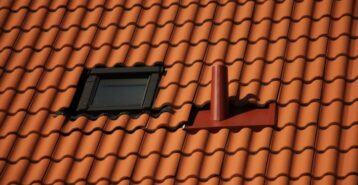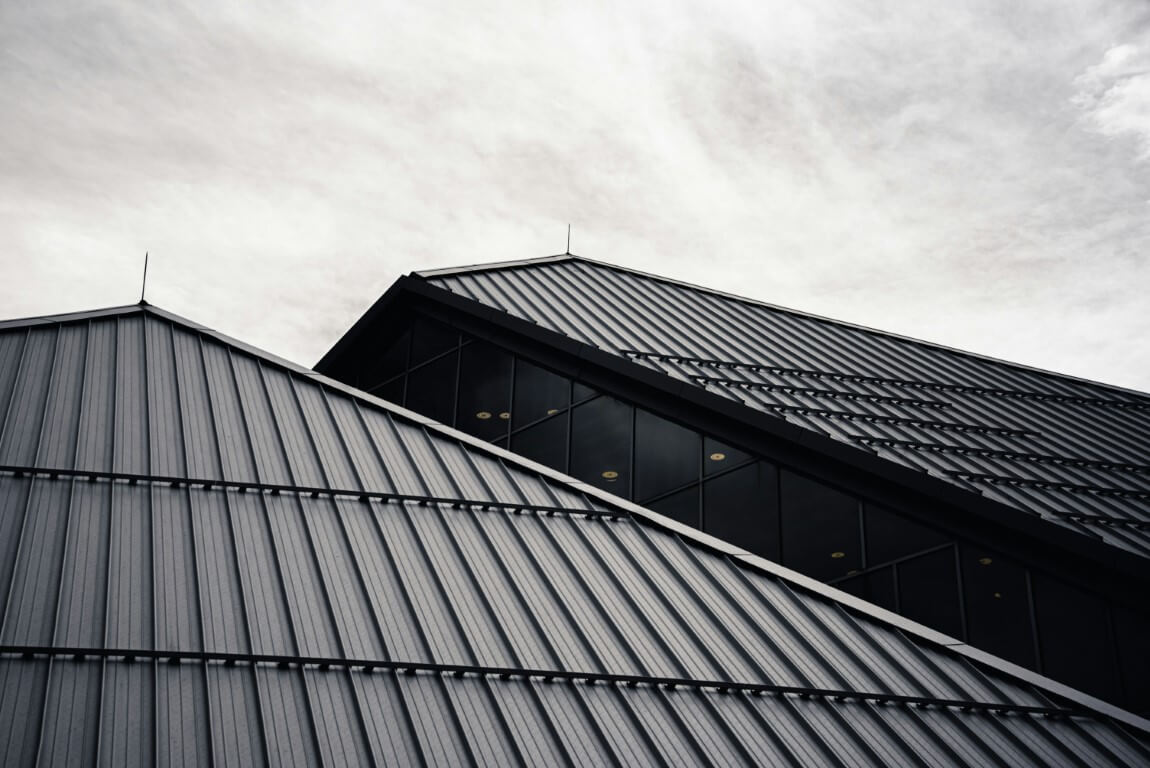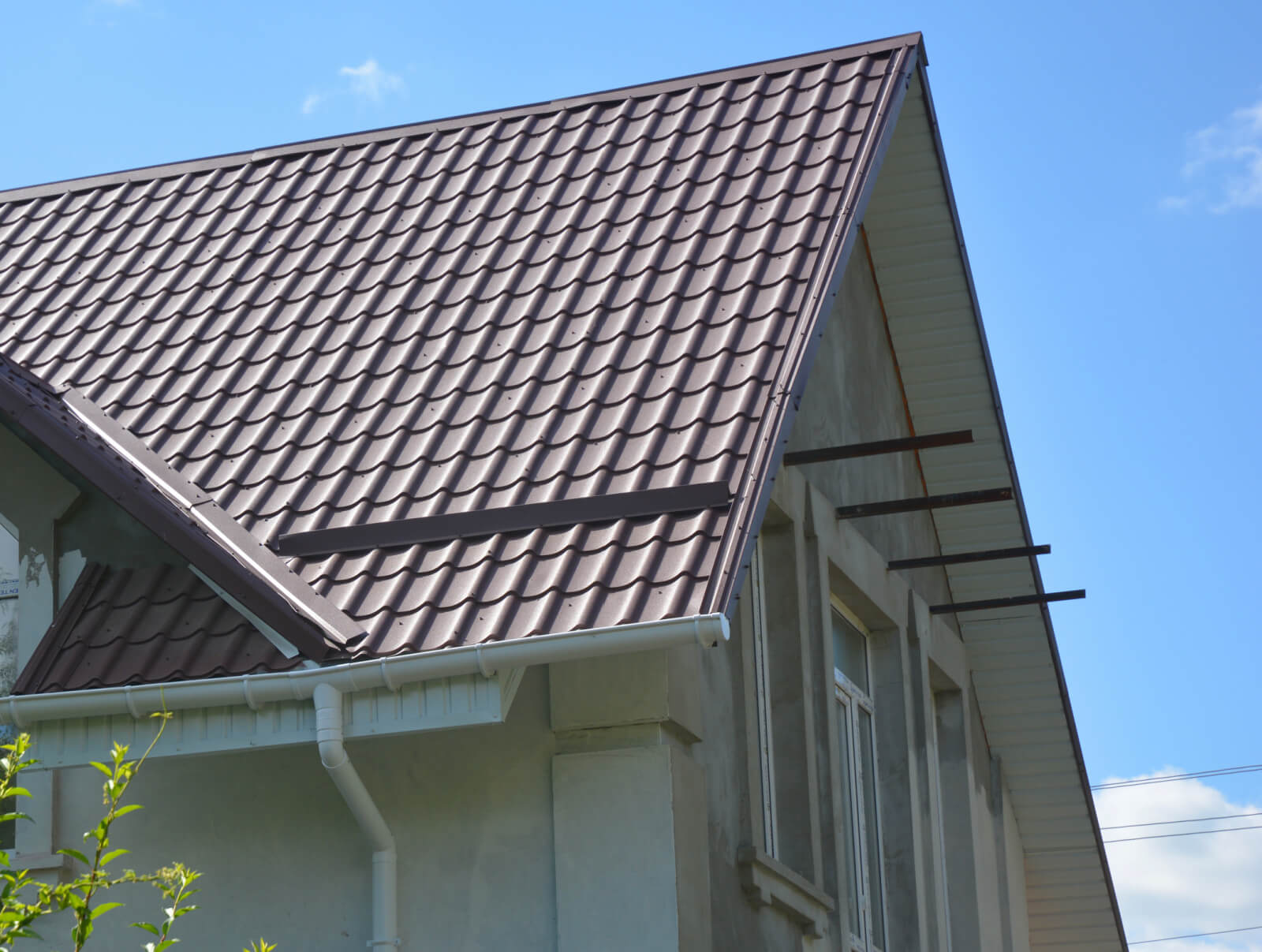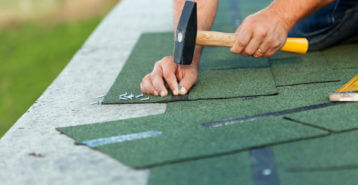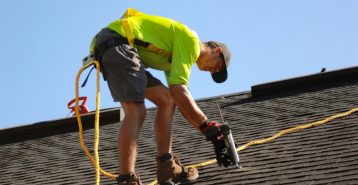Overview of Tiled Roofs
If you’re thinking about getting a new roof, tile could be a great choice for your home. Tile roofs are strong, energy-efficient, and give your house a classy appearance. There are many types of tile, each with different benefits, drawbacks, and costs.
Typically, the installation cost for a tile roof ranges from $9 to $17 per square foot. For a standard 2,000-square-foot roof, most homeowners spend about $26,900.
This guide will help you understand the costs, different styles, and ways to save on your project. So, without further ado, let’s get into it!
Types of Roof Tiles
The type of tile you choose greatly affects your costs. Here’s a quick comparison of the average installation costs per square foot for different roof tile types, along with the total estimated cost for a 2,000-square-foot roof:
| Tile Type | Installed Cost per Sq. Ft. | Total Installation Cost (2,000 Sq. Ft.) |
|---|---|---|
| Concrete | $10.70 – $27.50 | $21,400 – $55,000 |
| Clay | $11 – $22 | $22,000 – $44,000 |
| Terracotta | $9 – $26 | $18,000 – $52,000 |
| Slate | $8 – $35 | $16,000 – $70,000 |
| Metal | $6 – $21 | $12,000 – $42,000 |
| Composite | $8 – $15 | $16,000 – $30,000 |
| Solar | $21 – $25 | $42,000 – $50,000 |
Concrete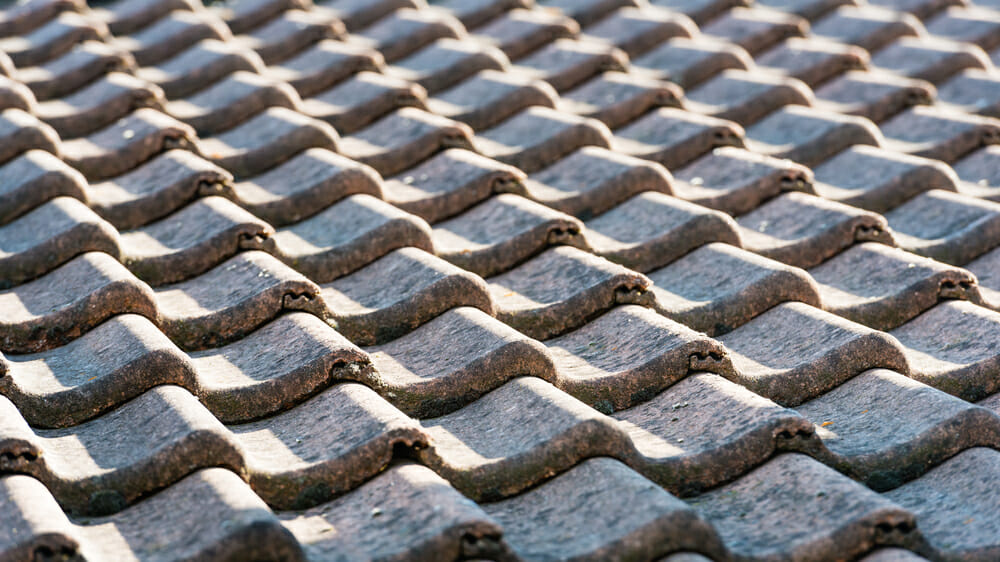
Concrete tiles are a practical and versatile option for homeowners who want durability without overspending. They can be molded to mimic the look of more expensive materials like clay or slate, offering a stylish appearance at a lower cost. These tiles hold up well in most climates, though their weight often requires additional roof support.
Expect to pay $10.70 to $27.50 per square foot to install concrete tiles, or $21,400 to $55,000 for a 2,000-square-foot roof.
Clay 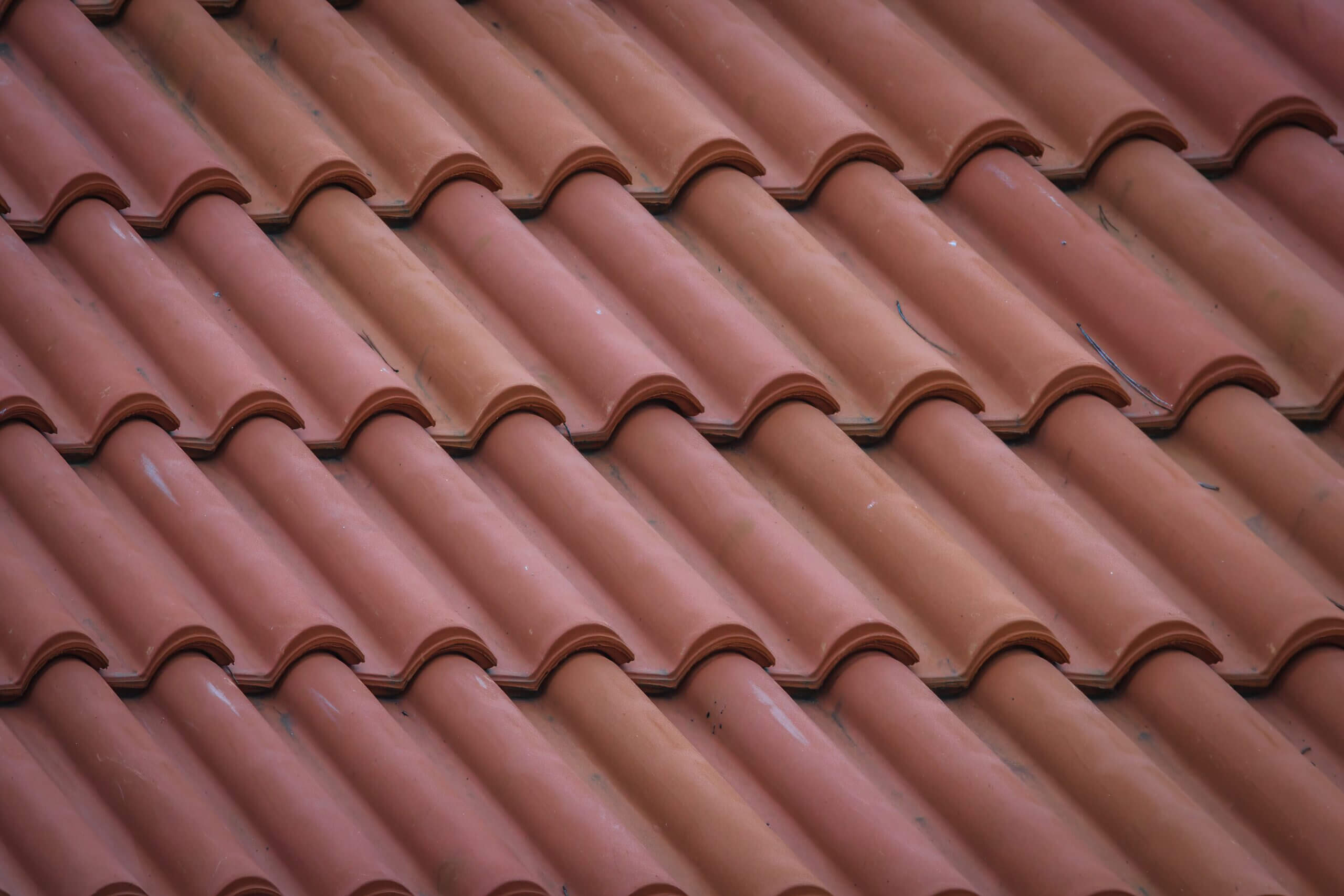
Clay tiles are known for their rich color, natural elegance, and exceptional performance in hot, sunny environments. They reflect heat well and offer built-in fire resistance, which makes them a popular choice in the Southwest and other warm regions. Their traditional look adds character, though they can be fragile and heavy.
Clay tile roofs usually cost $11 to $22 per square foot, which adds up to $22,000 to $44,000 for a 2,000-square-foot roof.
Terracotta 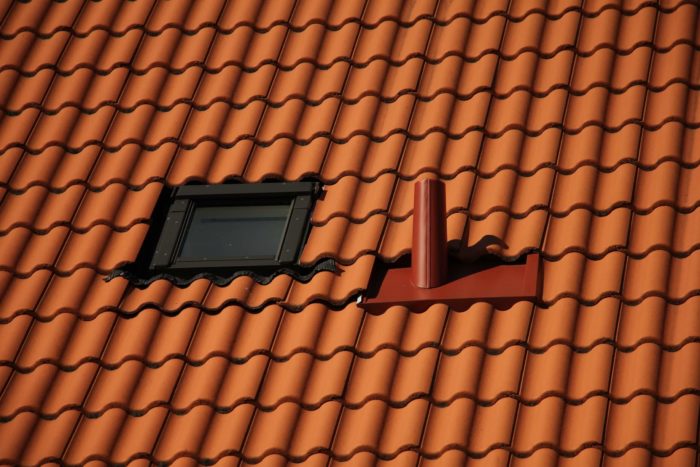
Terracotta tiles bring timeless style and a warm, Mediterranean feel to your home. Their signature reddish tones and curved shapes are perfect for Spanish- or Tuscan-inspired architecture. These tiles resist heat and can be glazed for added moisture protection, though they’re a bit more delicate than concrete.
Terracotta tile installation prices range from $9 to $26 per square foot, or $18,000 to $52,000 for a 2,000-square-foot roof.
Slate 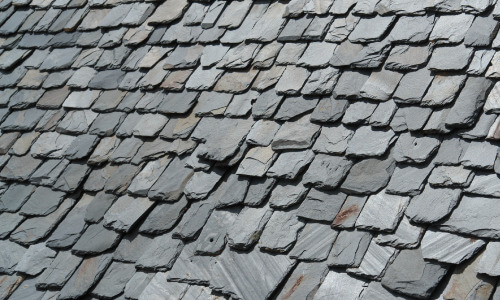
Slate tiles offer unmatched beauty and longevity, often lasting well over 100 years with minimal upkeep. Made from natural stone, they’re incredibly durable and naturally resistant to fire, moisture, and temperature changes. Their rich texture and dark tones give homes a sophisticated, high-end look, but the material’s weight and price tag are definitely on the higher end.
You’ll likely pay an installation cost of $8 to $35 per square foot for slate tiles, totaling $16,000 to $70,000 for a full 2,000-square-foot roof.
Metal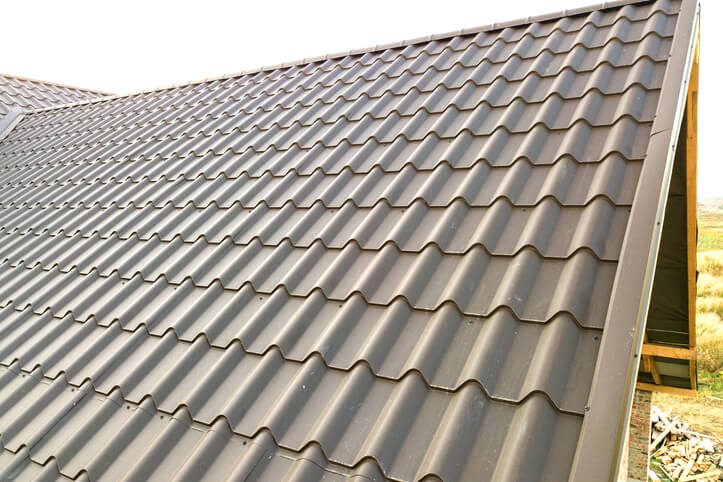
Metal roof tiles are a great option for homeowners looking for sleek style and strong performance. These tiles can be made from aluminum, steel, or copper, and often mimic the look of traditional tile or shake. They’re lightweight, durable, and excellent in areas with heavy rainfall or snow. Plus, they require less maintenance over time.
Tiled metal roof costs run $6 to $21 per square foot, or $12,000 to $42,000 overall for a 2,000-square-foot roof.
Composite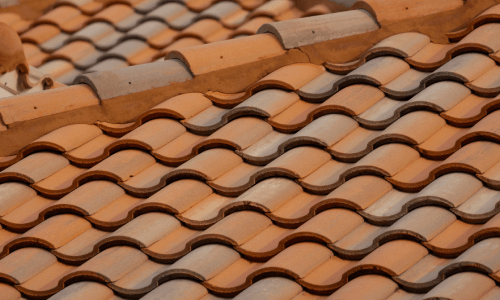
Composite tiles are engineered from a mix of recycled plastics, rubber, and other materials, designed to mimic the look of slate, wood shake, or clay tile. They’re lighter than natural tile, easier to install, and typically more resistant to impact and extreme weather. These tiles offer a balance between aesthetics, performance, and sustainability.
Expect to spend $8 to $15 per square foot to install composite tiles, or $16,000 to $30,000 for a standard 2,000-square-foot roof.
Solar 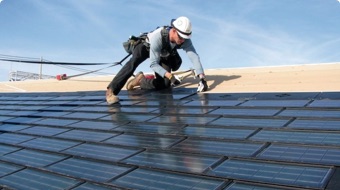
Solar roof tiles give your home a high-tech upgrade by combining roof protection with energy generation. Unlike bulky panels, these tiles blend in with traditional roofing materials while helping lower your utility bills. They’re a sleek, sustainable option, especially for homeowners focused on energy efficiency and long-term savings.
Solar tile roofs generally cost $21 to $25 per square foot, or $42,000 to $50,000 in total for a 2,000-square-foot roof.
Tiled Roof Cost by Roof Size
Tile roofing costs rise with the size of your roof. Most homeowners spend around $26,900 on a new tiled roof, but total costs vary greatly depending on your roof size, the material you choose, and local labor rates. Here’s what you might pay depending on your roof’s square footage:
| Roof Size (Sq. Ft.) | Average Cost Range |
|---|---|
| 1,000 | $7,000 to $27,500 |
| 1,500 | $10,500 to $41,250 |
| 2,000 | $14,000 to $55,000 |
| 2,500 | $17,500 to $68,750 |
| 3,000 | $21,000 to $82,500 |
These estimates include both materials and labor but can vary based on tile type, roof layout, and where you live.
Pros and Cons of Tiled Roofs
Before you decide on a tile roof, it’s important to weigh the good and the not-so-good. Here’s what to consider.
Pros:
- Durability: With the right care, tile roofs can last 50 to 100 years or more.
- Fire Resistance: Most tile types are non-combustible and offer strong fire protection.
- Energy Efficiency: Tiles provide natural insulation and help regulate your indoor temperature.
- Aesthetic Appeal: They come in a wide variety of colors and shapes to suit any home style.
Cons:
- Weight: Tiles are heavy and may require structural reinforcements.
- Cost: They tend to have higher upfront costs than other materials.
- Fragility: While durable, individual tiles can crack under impact.
- Installation: Skilled labor is a must, which can drive up labor costs.
Common Tile Roofing Styles
Roof tiles come in a variety of styles, each with its own look and function. Here are the most popular ones to help inspire your design.
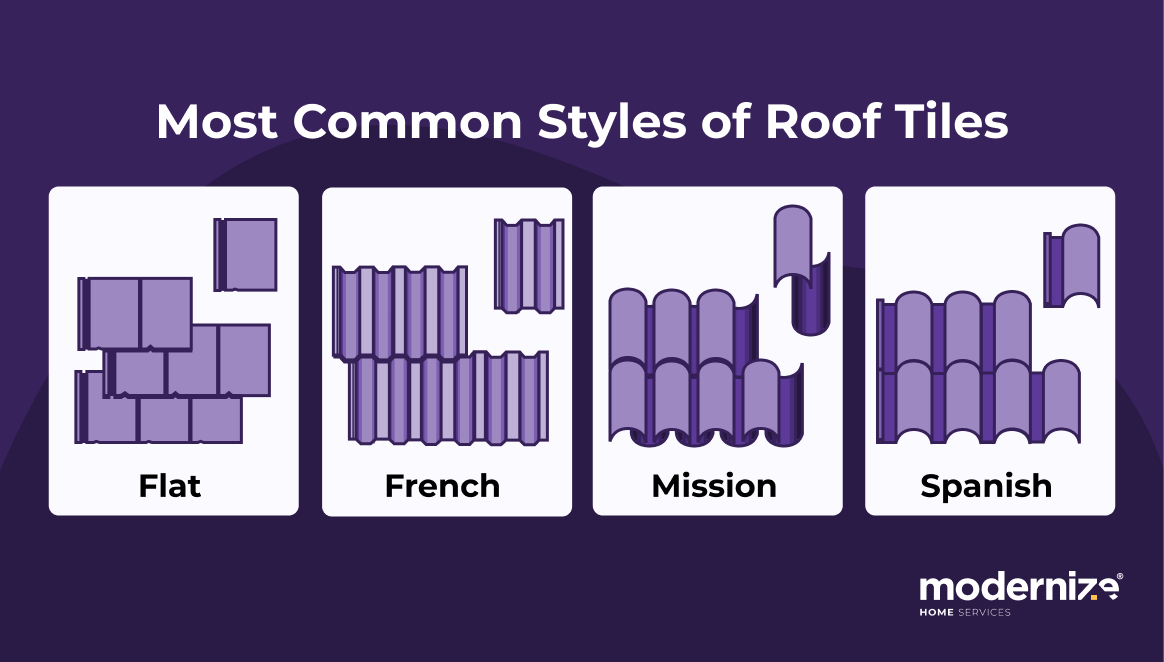
Spanish
Spanish tiles are known for their iconic “S” shape, which creates a flowing, wave-like pattern across the roof. These tiles are most often made of clay or concrete and are commonly found on homes with Mediterranean, Spanish Colonial, or Southwestern architecture. Their curved design helps promote airflow under the tiles, making them a smart choice for hot, dry climates where ventilation and heat control are important.
Mission
Mission tiles are laid using two separate pieces: a curved, convex top piece and a matching concave bottom piece. When arranged in alternating rows, they form a dramatic, ridged pattern that helps channel rainwater away from the roof. This classic tile style is a staple on historic buildings and churches and is particularly popular in California and the American Southwest, thanks to its timeless look and practical function.
Flat
Flat roofing tiles offer a clean, streamlined appearance that works well for both traditional and contemporary homes. These tiles lie flat and overlap to create a watertight surface that’s effective and visually appealing. Flat tiles can also be made to resemble slate or wood shakes, giving you more flexibility in terms of color and style while maintaining the benefits of tile.
Interlocking
Interlocking tiles are designed with tabs or grooves that allow them to fit tightly together. This creates a more secure seal that improves resistance to wind and water. Because of their precision fit, these tiles are generally easier and faster to install than some other styles. Their simple, uniform appearance is a great fit for modern architectural designs or homes located in storm-prone areas.
French
French tiles have a distinctive look thanks to their deep keyways and sharply contoured shape. This design creates bold shadow lines on the roof, adding texture and visual interest. French tiles not only enhance curb appeal but also perform well in shedding water efficiently. They’re often chosen for upscale or European-style homes where aesthetics and performance are both top priorities.
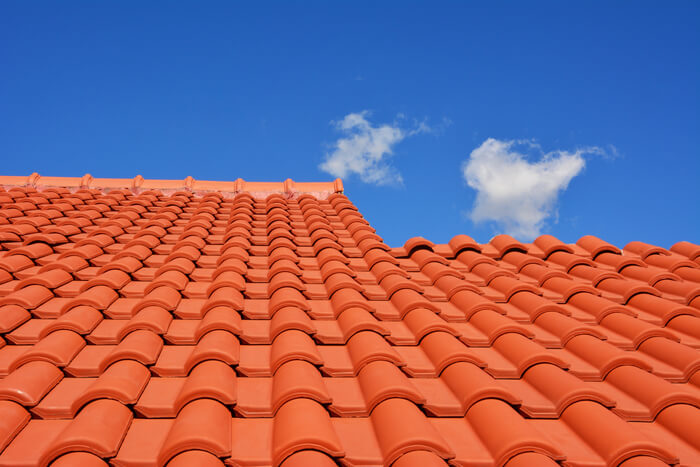
Factors That Influence Roof Tile Costs
Several things can affect the final price of your tile roof. Understanding these factors can help you plan your project and budget better.
- Material Type: Concrete, clay, slate, and composite all vary in price and performance. Natural materials like slate and terracotta cost more but often last longer.
- Roof Size and Complexity: Larger and more complex roofs require more material and time, driving up the price. Roofs with many angles, valleys, or chimneys are more expensive.
- Labor Rates and Location: Where you live impacts labor prices. Busy metro areas or places with limited roofing pros often see higher costs.
- Underlayment and Structural Support: Heavier tiles like clay and slate might need extra support and high-performance underlayment, adding to installation costs.
- Roof Pitch and Accessibility: Steep or hard-to-reach roofs take more time and safety precautions, which increases labor costs.
How to Save Money on Tile Roof Installation
Looking to cut costs without cutting corners? These tips can help you save on your tile roof installation.
Schedule During the Off-Season
Roofing projects tend to slow down in the cooler months, especially late fall and winter. During this time, contractors may offer better pricing just to keep crews busy. If your project isn’t urgent, scheduling during the off-season could lead to significant savings.
Ask About Recycled or Reclaimed Materials
Looking to cut costs without sacrificing style? Ask your contractor if reclaimed tiles are available. These are often leftover or gently used tiles that still meet performance standards but come at a lower price. Plus, they’re an eco-friendly choice!
Consider Lighter Tile Options
Tile weight can drive up installation costs, especially if your roof needs structural reinforcement. Choosing lighter materials, like concrete or composite, can help reduce the need for added support and lower overall labor expenses, all while still giving your home a beautiful, durable finish.
Bundle With Other Home Projects
If you’re already planning home updates, like installing new gutters or upgrading insulation, consider bundling the work. Many contractors offer discounts when you combine projects, saving you money on both labor and materials while reducing the disruption to your home life.
Compare Quotes
Don’t settle for the first price you hear. Reach out to at least three licensed roofing contractors in your area to get a range of estimates. Not only does this help you find the best deal, but it also gives you a feel for each contractor’s experience and approach to the job.
Modernize can connect you with up to four local roofing contractors so you can get quotes, pricing, and expert advice to get started on your roofing project.
FAQ: Tiled Roofs
What are the disadvantages of tile roofs?
Tile roofs offer great durability and curb appeal, but they’re not without drawbacks. One of the biggest downsides is weight; many tile types are heavy and may require extra structural support, adding to installation costs. Tile roofs also have a higher upfront cost than materials like asphalt. While long-lasting, individual tiles can be fragile under impact and may crack if walked on or struck by falling debris. Finally, installation is labor-intensive, meaning you’ll need skilled contractors, which can increase labor expenses.
What is the life expectancy of a tile roof?
With proper installation and maintenance, tile roofs can last 50 to 100 years or more. Materials like slate and clay tiles are especially long-lived, often outlasting other roofing types by decades. Their resistance to fire, insects, and weather damage makes them one of the most durable roofing choices available.
Do tile roofs keep a house cooler?
Yes, tile roofs help keep your home cooler, especially in hot climates. Tile’s natural insulating properties and the way it’s installed (often allowing for airflow underneath) work together to reduce heat transfer into your home.
Does tile roof increase home value?
Absolutely! A tile roof can increase your home’s value. Thanks to its long lifespan, low maintenance, and distinctive visual appeal, tile roofing is often seen as a premium upgrade. It adds curb appeal and can signal quality construction to potential buyers, especially in regions where tile roofing is popular or well-suited to the climate.
Are tile roofs high maintenance?
Tile roofs are generally low maintenance, but they do require occasional attention. While the tiles themselves are long-lasting, you’ll want to inspect them regularly for cracks or loose pieces, especially after storms. Moss or algae may also develop in humid areas, though it’s usually easy to clean.


